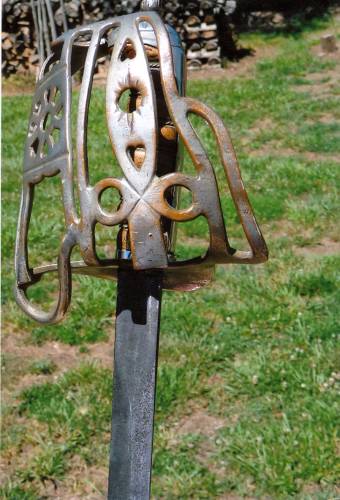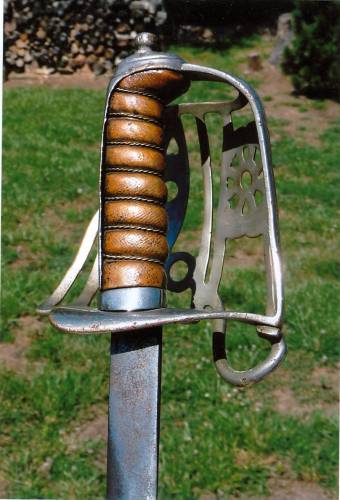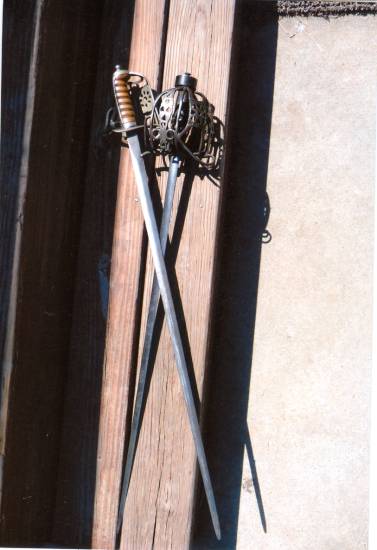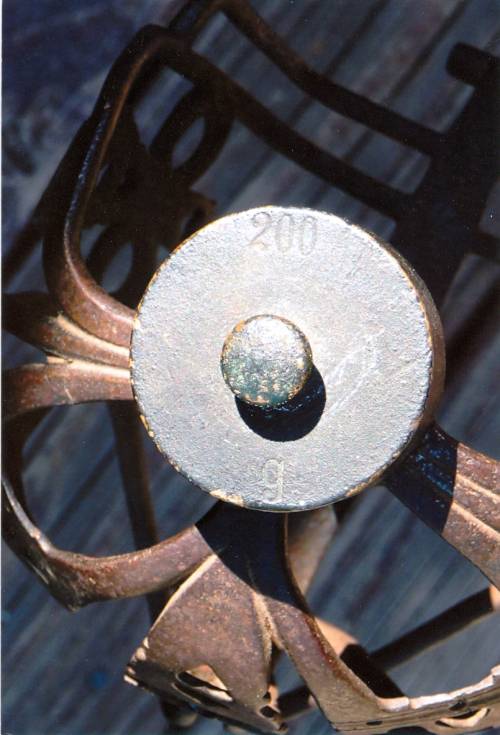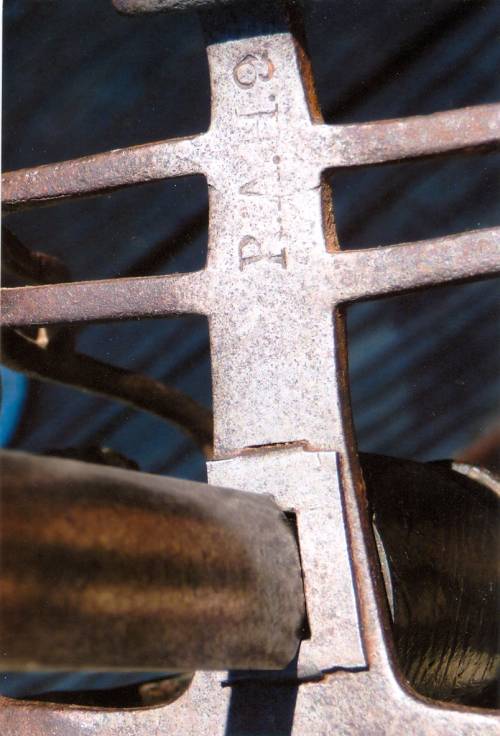The basket hilt seems to be a standard 1828 pattern from what I can see in the closeup of the pommel and the full shot of the two swords together. The markings on the quillon appear the be "R. A. H. 9". On the pommel is "200" and "g". The pommel itself appears to be a very large, thick disk. I cannot say that I have ever seen one like that before and it looks awkward. The owner says there are no other markings on the sword other than what he photographed.
The half basket is even more curious. The shape of the hilt and the pommel are very much like that of the 1822 Infantry Officers Pattern and the 1827 Pattern swords pictured in Withers" book. The half basket is the real mystery as I have not see one like it before on what appears to be a 19th c. blade nor can I find a reference for one like it in any of my literature. Withers' book, again, shows similar hilts on two late 18th c. swords but neither very closely resembles the one on this sword. The blade is also quite plain and the owner says he found no markings of any kind on this sword.
Anybody seen anything like these before? I had to scan the photos to attach and they are not quite as clear as the originals but I think there is enough detail to help with ID. I expect there is an easy answer to this, I just do not have it.
